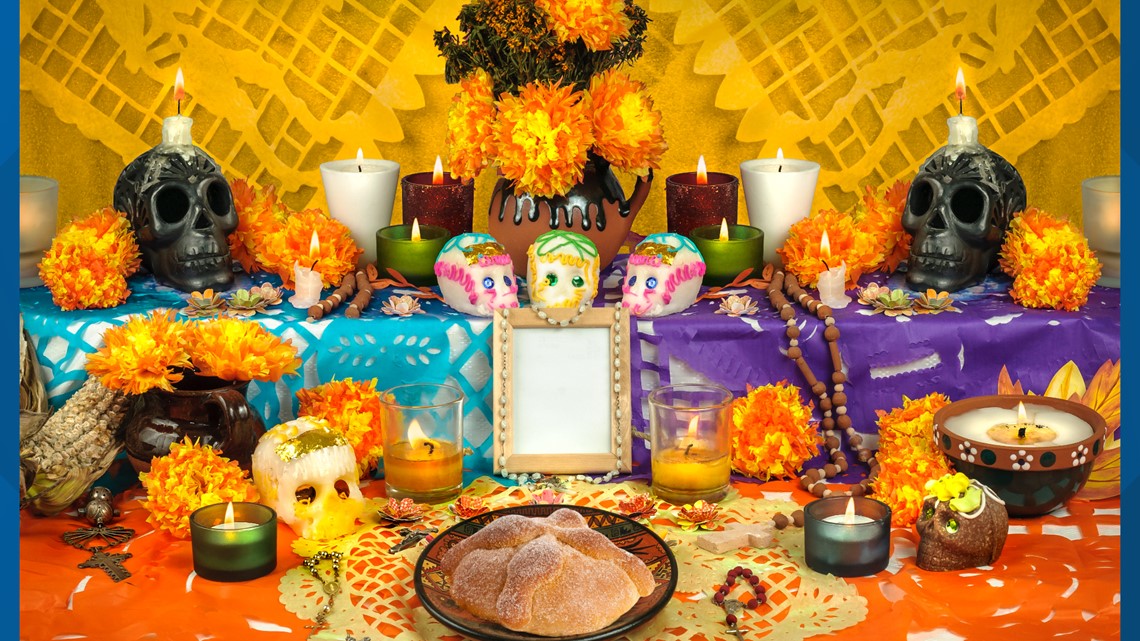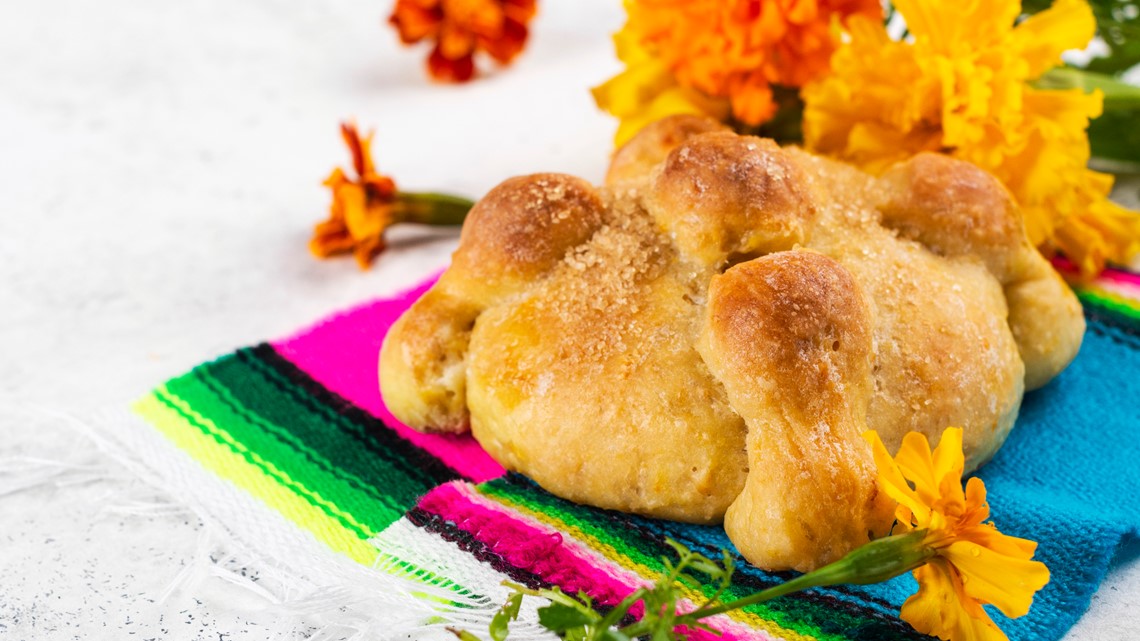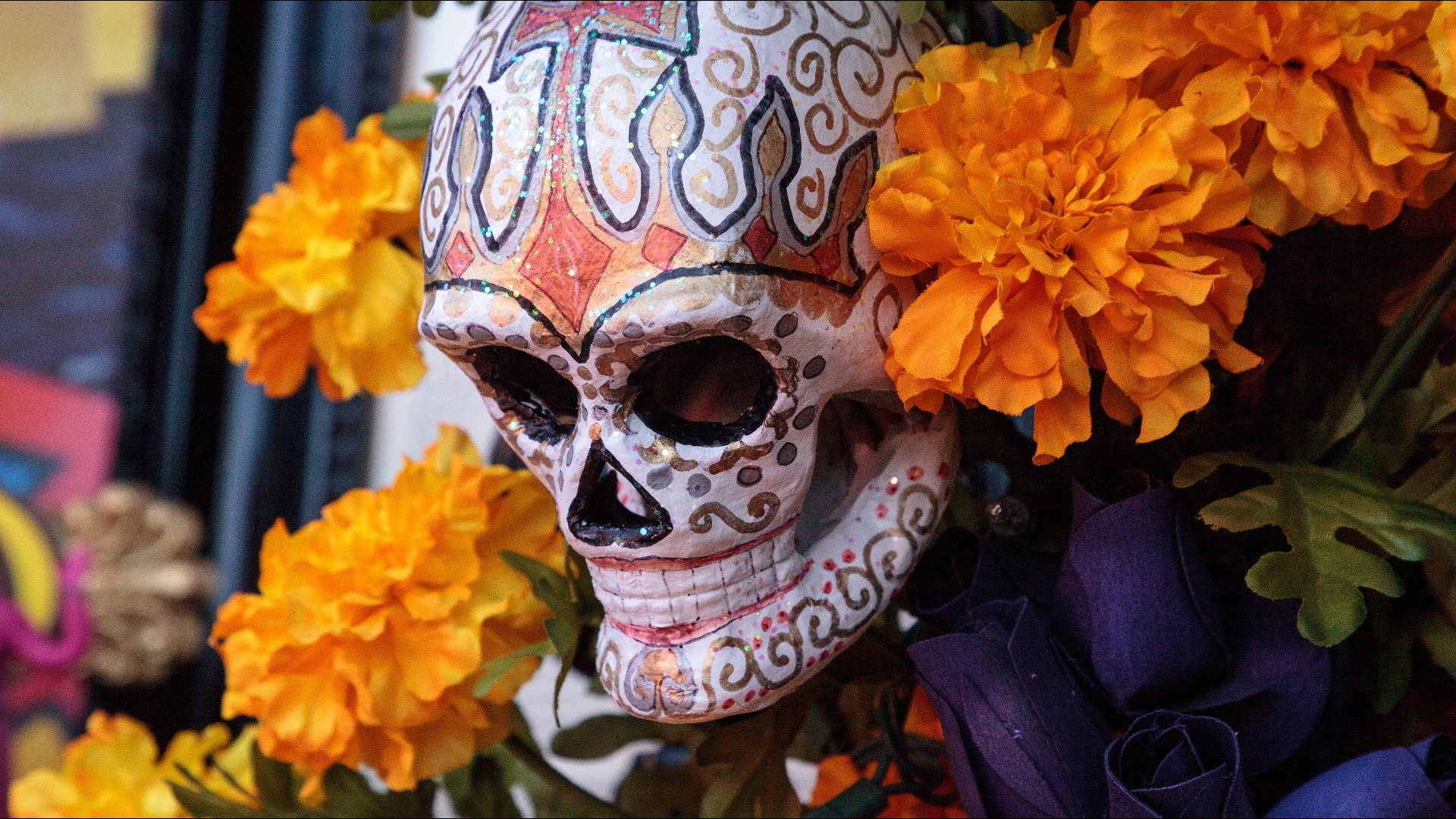COLORADO, USA — Dia de los Muertos is a time to remember and honor those who have passed.
On the first two days of November, those who celebrate setup ofrendas (altars) as a shrine at home or in the community. They are adorned with photographs, personal belongings, candles, sugar skulls, pan de muerto, flowers (typically marigold flowers), incense and more.


Making an altar for the dead is not a difficult task. They come in a myriad of shapes and they can be as laborious, creative or simple as you'd like.
According to Remezcla, the altars should represent the four elements: fire (candles), wind (papel picado), earth (food), and water.
According to Ramon Del Castillo, former Chicano Studies Professor at Metropolitan State University of Denver, the altars in the homes are a chance for families to "get together and remember and talk about that person; believing that the spirit is there with them just to say 'Hello, how are you doing? We remember you. We'll never forget you.'"
Below is a list of eight essential elements to get you started:
- Marigolds - Known for their medicinal properties and used to decorate graves, the golden yellow or copper brown color of marigolds represents the sun. Their strong scent creates an aromatic ambiance, and they are believed to attract the souls of the dead.
- Pan de Muerto - or Bread of the Dead, is a sweet bread baked and offered as a type of ofrenda that is part of an altar. Its criss-cross shape represents bones and the single tear shape stands in for sorrow. According to Remezcla, it signals the generosity of the host and feeds the dead after a long, weary journey.
- Candles - The flames of the candles symbolize hope and faith, and they light the way to help the souls find their way to the altar. Typically white candles are used, but purple can also stand in to symbolize grief.
- Copal Incense - The incense represents praise and prayer. It is believed that the rising smoke takes the prayer to the gods and serves as an offering to the gods to cleanse the air and allow spirits to enter without difficulty.
- Papel Picado - The thin sheet of colorful paper typically designed with skeletons, animals and pumpkins represents the wind, because when loved ones arrive, the paper will move and thus alert the host to their presence. Yellow paper symbolizes life, purple stands in for death and orange serves as the union between life and death, according to Remezcla.
- Drinks and Food - Water is a must because it not only quenches the soul's thirst, but it represents purity of the soul and the source of life. Other drinks and food can vary depending on what ancestors enjoyed.
- Sugar Skulls - Typically decorated with flowers and other designs, sugar skulls represent death and the sweetness of life.
- Personal Objects - These objects define a loved one and can range anywhere from a piece of clothing to a favorite hobby. They stand in to make a loved one feel at home and comfortable. According to Remezcla, toys are common for children, who are celebrated on Nov. 1.
Where to celebrate Dia de los Muertos
This year in Colorado, there's an array of events and businesses holding Dia de los Muertos celebrations.
- One event in particular, the 4 day Dia de los Muertos Festival, has held the largest altar in Denver and surely won't disappoint this year.
- Día de los Muertos Celebration at Denver Botanic Gardens on Nov. 6, from 9 a.m to 4 p.m.
- 4 day Dia de los Muertos Festival at Village Exchange Center from Oct. 30 to Nov. 2. Hours vary by day.
- Memorial projections of loved ones in person during the First Friday Art Walk at Grace Gallery at 877 Santa Fe Dr., Nov. 5 from 5:30 p.m. to 9:30 p.m.
- Dia de los Muertos at Museo de las Américas on Nov. 5 p.m to 9 p.m. There will be Catrina contests for adults and children from 7 p.m. to 7:30pm.


VIDEOS SUGERIDOS: Guía Colorado

